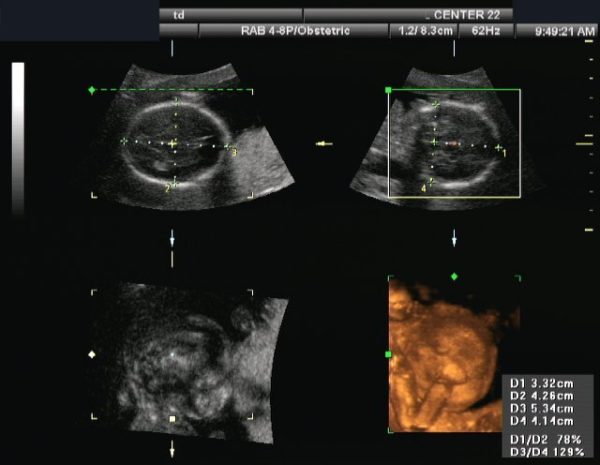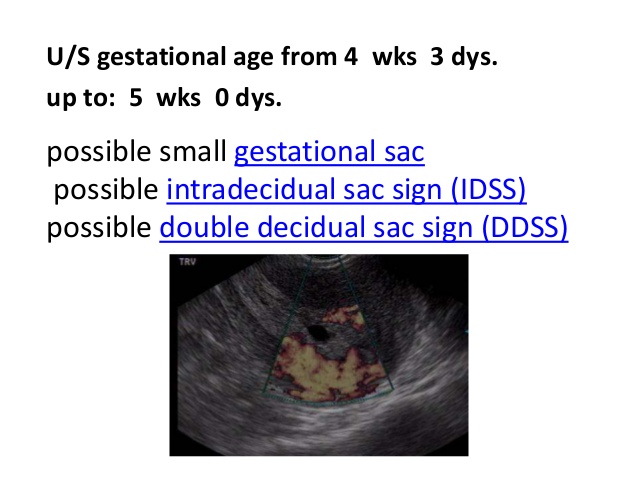How Soon Can an Ultrasound Detect Pregnancy

Contents:
- How Early Can an Ultrasound Detect a Pregnancy and Fetus
- How Soon Can an Ultrasound Detect Pregnancy?
- Types of Ultrasound Examination to Detect Pregnancy
- Getting Ready for the Examination
- Reading the Results of an Ultrasound Examination
How Early Can an Ultrasound Detect a Pregnancy and Fetus
How soon can an ultrasound detect pregnancy? This is the question that women are excited to get answer for. A woman starts to ask herself this question once she notices that her periods do not come once again or once there are symptoms that make her think that she’s in a “delicate condition”. You shouldn’t undergo an ultrasound examination the next day after you noticed that your periods didn’t come.
An ultrasound can’t detect pregnancy when it’s only the very beginning of it. The results you get from a pregnancy test may not be reliable. We are going to speak about when you’d better undergo this examination, how to choose the necessary type of ultrasound examination and what do the results depend on.
How Soon Can an Ultrasound Detect Pregnancy?
Ovum may either be fertilized on the day of ovulation (approximately the middle of your periods) or within several days after it if a spermatozoid will “manage to get” to the ovum. After it, these two fused cells should get to the uterus and become embedded in its mucous layer where the fetus will continue to develop.
It’s almost impossible to conceive a child if according to the results of the ultrasound examination you underwent when planning pregnancy showed that your fallopian tubes are blocked. These tubes are important organs of your reproductive system.
In order for a doctor to be able to detect pregnancy when carrying out an ultrasound examination, several conditions are taken into account:
- the term of pregnancy. Enough time should pass for “the bulge” that is a developing fetus to be clearly seen and possible to differentiate from a polyp of the mucous layer.
- there shouldn’t be any inflammation process going on in the mucous layer of the uterus. The thing is that this inflammation process causes the swelling of your uterus. As a result, the ovum should be quite big to be clearly seen.
- type of diagnostic technique. It should match your case.
- hd ultrasound scanner.
- the examination should be carried out by a radiologist that specializes in diagnosing pregnancy. Those radiologists who work at multi-industry centers are not as good at it as those who work at obstetric-gynecologic hospitals.
When will an ultrasound detect pregnancy? If the doctor who is carrying out an examination is a real professional and he/she has a hd ultrasound scanner, it will be possible to detect “a bulge” that’s 3-5 mm in diameter. In other words, you can find out whether you’re pregnant or not on the 5th – 6th day after your periods didn’t come. These 5 days mean that your child was conceived 3 weeks ago.
If you want to get more information, you’d better undergo an ultrasound examination 10 days after your periods didn’t come. You may use vaginal sensor in this case. You need to know that, due to the fact that this is an early term of pregnancy, a radiologist is unable to say if your case is the case of an ectopic pregnancy. He/she may only suspect it.
Types of Ultrasound Examination to Detect Pregnancy

- Transvaginal ultrasound examination is carried out with the help of a particular sensor that’s introduced in your vagina. This type of ultrasound examination is considered to be the most informative. It can detect pregnancy on the very early term – starting from the 3rd-4th week or even earlier.
- Abdominal ultrasound examination. In this case a doctor puts the sensor on the front wall of your abdomen. Consequently, there is a longer, than in case of transvaginal ultrasound examination, distance “to go” before the uterus is seen. So, when will this type of examination detect pregnancy? It will detect it 2 weeks later, on the 5th week. It may take even more time in case a woman has a thick layer of adipose tissue.
Both these types of ultrasound examination have their own peculiarities that we’ll discuss below.
Getting Ready for the Examination
If you want the results to be as reliable as possible, you need to get rid of the gases in your bowel. If there are gases, it will be more difficult to clearly see the structure of your uterus and fallopian tubes.
In order to get rid of gases, refuse eating and drinking the following foods and drinks 3 days before you undergo the examination:
- bean products;
- cabbage;
- fresh fruits;
- pastries;
- fuzzy drinks.
This rule refers to both types of ultrasound examination. In case you undergo a transabdominal ultrasound examination, your urinary bladder should be full. You may either not go to the toilet for 3 hours before the examination or drink 2-3 glasses of water without gas 1 hour before the examination and not go to the toilet after that.
Reading the Results of an Ultrasound Examination
There are the following symptoms of pregnancy that are, as a rule, detected during an ultrasound examination:
- there is detected a drop-like or round hypoechogenic mass;
- the diameter of the mass is 3-5 mm or even more (in accordance with the term of your pregnancy);
- there is a thin shell around the mass;
- if there is a case of uterine pregnancy, the mass (the ovum) us located in the cavity of the uterus-tube angle. In rare cases, it is located lower, in the cavity of the uterus;
- If there is a case of an ectopic pregnancy, such like mass will be located in a fallopian tube, in the area of the neck of the womb or abdominal cavity.
An ultrasound examination can detect pregnancy indirectly, by detecting if there is corpus luteum or not. As a rule, this small endocrine gland should regress when periods come. If it’s time your periods should come but nothing happens with the corpus luteum, it’s very likely that you’re pregnant.